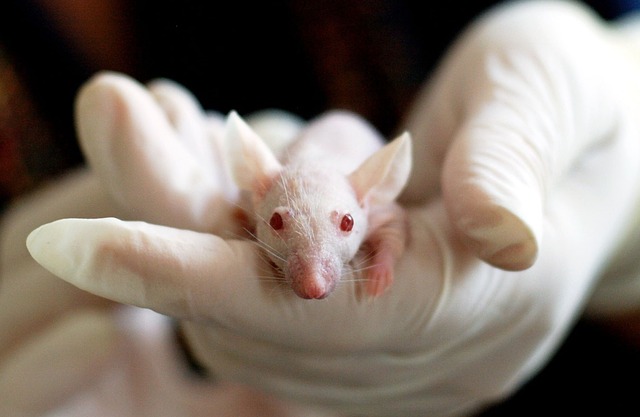
By Maura Perri, Staff Writer
In recent years, the beauty industry has been booming. For instance, upscale beauty product sales have surged, increasing by 13 percent within the past year.[1] Despite the substantial growth of the beauty industry, however, cosmetic consumers remain concerned about whether their products are cruelty-free, with around 72 percent of American beauty buyers reporting their opposition to animal testing in 2011.[2]
There is apparent apprehension to buying products made by companies that subject animals to trial-runs of their merchandise. Yet, the U.S. government is one of the only governing bodies in the world that still allows what the Animal Legal Defense Fund calls “legally-sanctioned animal abuse.”[3]
Despite the passage of the Animal Welfare Act, which addresses the standard of care animals at research facilities are required receive, nearly 95 percent of animals typically tested upon (including mice, birds, and fish) are excluded. Thus, laboratories are not obliged to report on the animals they use to facilitate their testing. According to a 2015 study done by People for the Ethical Treatment of Animals (PETA), laboratories have only increased the use of animals in experimentation, rising nearly 73 percent in the past 15 years.[4] Animals used in cosmetic testing have suffered particular hardship, with more than 100 million animals — including mice, rats, dogs, cats, rabbits, etc. — being killed each year.[5]
Clearly, there is an obvious clash between U.S. law and the moral concerns of American cosmetic consumers. So, what can be done to reconcile this difference, and what effect would a change have on the beauty industry?
One option for resolution is to follow in the footsteps of the state of California, which passed a law in 2000 that limits product-testing in scenarios where non-animal alternatives are available.[6] Furthermore, in June 2015, the Humane Cosmetics Act was proposed to Congress to phase animal-testing out of the U.S. completely.[7] Thus, if people feel strongly enough about this issue and reach out to members of Congress, this bill has the potential to be passed.
Finally, as more and more companies move toward cruelty-free production, it appears to be the next logical step for the government to follow suit and introduce more legislative restrictions on animal testing.[8] It appears that moving toward banning animal-testing has not had a negative effect on business. Rather, abandoning animal testing appears to have been quite profitable for many companies.[9]
Overall, although many companies are moving in the right direction, U.S. legislation must follow suit to bring an end to animal cruelty in the cosmetic industry.
Sources
[1] Sarah Halzack, Women are scrimping on clothes, but splurging on this, The Washington Post (Mar. 30, 2016) https://www.washingtonpost.com/news/business/wp/2016/03/30/women-are-scrimping-on-clothes-but-splurging-on-this/?utm_term=.bd5b9e6cf707.
[2] More Than a Makeup Trend: New Survey Shows 72 percent of Americans Oppose Testing Cosmetic Products on Animals, Physicians Committee for Responsible Medicine (2011) https://www.pcrm.org/research/animaltestalt/cosmetics/americans-oppose-testing-cosmetics-on-animals.
[3] Animal Testing and the Law, Animal Legal Defense Fund http://aldf.org/resources/when-you-witness-animal-cruelty/animal-testing-and-the-law/.
[4] Michael Casey, Animal Experimentation up 73 percent study says, CBS News (Feb. 26, 2015) http://www.cbsnews.com/news/peta-study-finds-animal-testing-in-federal-labs-on-the-increase/.
[5] Experiments on Animals: Overview, PETA, http://www.peta.org/issues/animals-used-for-experimentation/animals-used-experimentation-factsheets/animal-experiments-overview/
[6] Id.
[7] Federal Bill to End Cosmetics Testing on Animals Introduced: U.S. Would Join More than 30 Other Nations with Cruelty-Free Cosmetics Policies, The Humane Society of the United States (June 23, 2015), http://www.humanesociety.org/news/press_releases/2015/06/hca-reintroduction-062315.html?referrer=https://www.google.com/.
[8] Monica Engebretson, Ending Cosmetic Testing on Animals is Good Business, The Huffington Post (Nov. 22, 2016) http://www.huffingtonpost.com/monica-engebretson/ending-cosmetic-testing-o_b_13136278.html.
[9] Id.